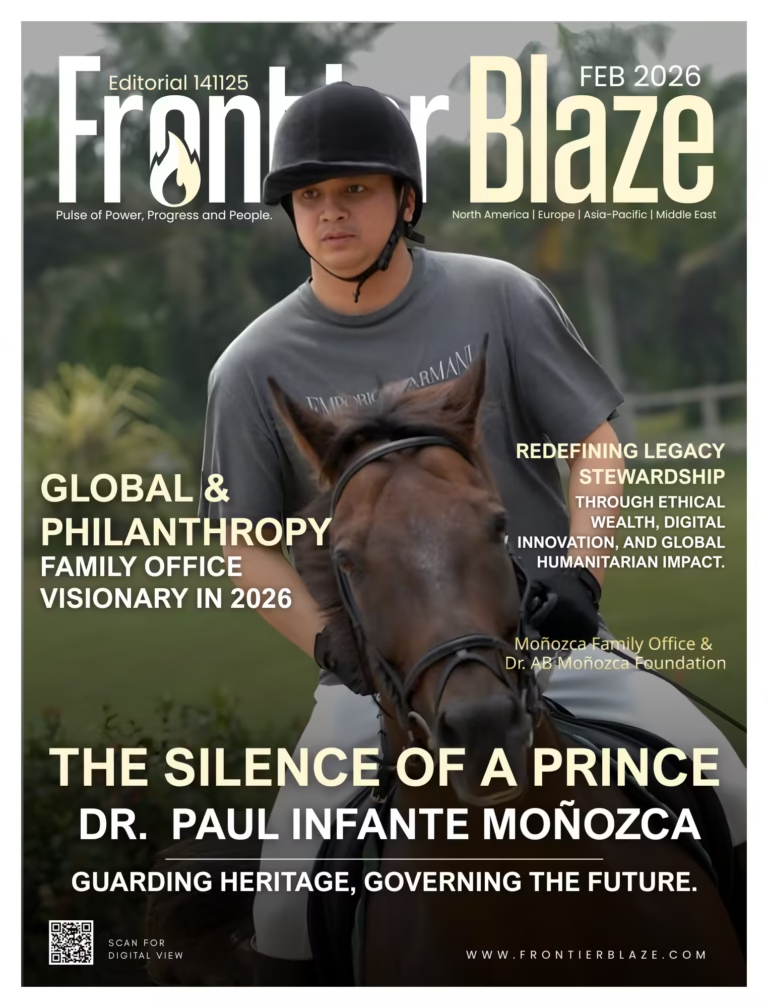Khalid Turk
Reading Time
SHARE

Industry Leading: Khalid Turk on Transforming Healthcare with Technology and Empathy
Khalid Turk is a trailblazer in healthcare technology, whose innovative work is transforming the way we perceive and deliver patient care. With a career spanning leadership in hospital integrations, AI-driven solutions, and telehealth, He is a pioneer of digital transformation in healthcare. From founding ExecPresence.Online, a platform designed to empower executives, to spearheading cutting-edge initiatives at Santa Clara Valley Healthcare, his journey is a testament to the transformative power of technology when paired with a human touch.
The Path to Digital Leadership
Khalid’s foray into healthcare technology began with a desire to tackle systemic inefficiencies and improve patient experiences. His early realization that technology could be a critical enabler in healthcare led him to a career at the forefront of innovation.
“By leveraging a combination of strategic vision, technical expertise, and empathetic leadership, I positioned myself as a thought leader in healthcare IT”
From leading telehealth initiatives during the pandemic to implementing AI tools that enhance clinical decision-making, his work reflects his commitment to creating meaningful change. His media engagements with publications like Becker’s Hospital Review and speaking at conferences such as CHIME amplify his message of responsible innovation. ExecPresence.Online further extends this mission, empowering leaders to harness technology for impactful transformations.
AI in Healthcare: Revolutionizing Patient Care
AI’s potential in healthcare is vast, and Khalid has been at the forefront of its application. At Santa Clara Valley Healthcare, AI has been a game-changer, especially in areas like clinical documentation and diagnostics.
- AI-Driven Clinical Documentation: Generative AI models reduce the administrative burden on clinicians, allowing them to focus on patient care.
- Early Diagnostics: AI tools enable faster and more accurate detection of diseases, from cancer to chronic conditions.
- Operational Efficiency: Predictive analytics optimize resource allocation and equipment maintenance.
“Our generative AI pilot in radiology led to faster and more accurate image interpretations, directly improving patient outcomes”
Despite its benefits, he emphasizes the importance of maintaining transparency and building trust in AI systems to ensure their adoption and success.
Navigating Challenges in Healthcare Innovation
Transforming healthcare through technology is not without its challenges. Khalid highlights two primary hurdles:
1. Balancing Innovation with Compliance
Rolling out solutions like telehealth during the pandemic required navigating strict regulatory landscapes. Ensuring compliance with frameworks like HIPAA while scaling technology demanded meticulous planning.
2. Driving Change Management
“Getting buy-in from stakeholders across all levels is critical”
Whether integrating hospitals or deploying new systems, involving end-users early, gathering feedback, and offering robust training were key strategies that ensured success.
Learning from Other Industries
Khalid believes that healthcare’s digital evolution can benefit immensely by borrowing practices from other sectors:
- Retail: Personalization strategies in retail inspire tailored treatment plans in healthcare.
- Finance: Cybersecurity frameworks in banking serve as models for safeguarding sensitive patient data.
- Technology Partnerships: Collaborations with startups foster interoperability and bring innovative solutions to healthcare.
Cross-industry insights ensure that healthcare not only evolves within its ecosystem but also thrives on the expertise of other fields.
Emerging Trends in Digital Healthcare
Khalid identifies several trends that are poised to shape the future of healthcare:
1. Precision Medicine
AI-powered genomic analysis enables highly individualized treatments.
2. Digital Twins
Virtual patient replicas simulate treatments and predict outcomes, paving the way for safer and more effective care.
3. Voice-Enabled Technologies
Hands-free interaction with electronic health records is streamlining workflows.
4. Interoperability
Breaking down data silos fosters seamless information flow across healthcare systems.
“At the heart of these advancements is the commitment to keep the human element central to healthcare” He emphasizes, ensuring technology complements rather than replaces clinician-patient relationships.
Advice for Aspiring Leaders
Khalid’s advice for future leaders in healthcare technology is rooted in three core principles:
1. Stay Curious: Innovation stems from understanding emerging technologies and their implications.
2. Stay Collaborative: Transforming healthcare requires interdisciplinary teamwork.
3. Stay Committed: Every decision should be guided by the mission to improve patient outcomes.
He also highlights the importance of empathetic leadership, a philosophy central to his forthcoming book, “Be the Leader You Would Follow.” He believes effective leadership is about understanding the human impact of every decision.
Shaping the Future of Healthcare
Khalid Turk’s journey is a beacon for aspiring innovators. By blending technology with empathy, and innovation with purpose, he is redefining the future of healthcare. His work inspires not just the industry but also future leaders to approach transformation with a focus on both efficiency and compassion.
His message is clear: “Technology is a tool, but it’s the human element that will ultimately drive meaningful change in healthcare.”








